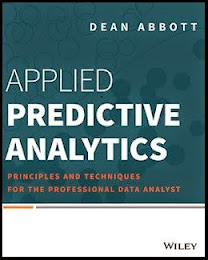In many fields, it is common to find a gap between theorists and practitioners. As stereotypes, theorists have a reputation for sniffing at anything which has not been optimized and proven to the nth degree, while practitioners show little interest in theory, as it "only ever works on paper".
I have been amazed at both extremes of this spectrum. Academic and standards journals seem to publish mostly articles which solve theoretical problems which will never arise in practice (but which permit solutions which are elegant or which can be optimized to some ridiculous level), or solutions which are trivial variations on previous work. The same goes for most masters and doctoral theses. On the other hand, I was shocked when software development colleagues (consultants: the last word in practice over theory) were unfamiliar with two's complement arithmetic.
Data mining is certainly not immune to this problem. Not long ago, I came upon technical documentation for a linear regression which had been "fixed" by a logarithmic transformation of the dependent variable. (There is a correct way to fit coefficients in this circumstance, but that was not done in this case.) Even more astounding was the polynomial curve fit which was applied to "undo" the log transformation, to get back to the original units! Sadly, the practitioners in question did not even recognize the classic symptom of their error: residuals were much larger at the high end of their plots.
Data miners (statisticians, quantitative analysts, forecasters, etc.) come from a variety of fields, and enjoy diverse levels of formal training. Grounding in theory follows suit. The people we work for typically are capable of identifying only the most egregious technical errors in our work. This sets the stage for potential problems.
As a practitioner, I have found much that is useful in theory and suggest that it is a fountain which is worth returning to, from time to time. Reviewing new developments in our field, searching for useful techniques and guidance will benefit data miners, regardless of their seniority.
Friday, September 24, 2010
Subscribe to:
Post Comments (Atom)






No comments:
Post a Comment